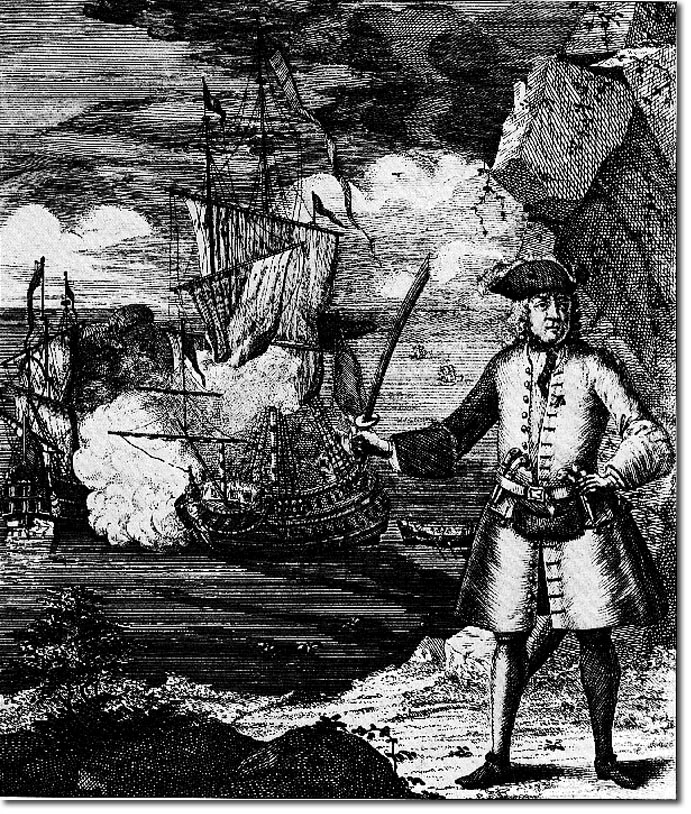|
|


|
| Henry Avery became a well reknowned pirate in the Seventeenth Century. It was claimed that he was born in Cattedown, Plymouth although it seems as if this may be mistaken and that he was actually born in Newton Ferrers. However, he entered the Royal Navy and sailed from Plymouth as a midshipman in the Rupert and a mate in the Albemarle. In 1693 he joined a privateering expedition as first mate of the Charles, one of four armed merchant ships which set off from London to salvage Spanish treasure ships in the West Indies. They were delayed for some months in Corunna, and failure to pay the seamen's wages provoked a mutiny. On 7 May 1694 Avery and sixty-five men seized the Charles while her captain was laid low with fever. They put the captain and sixteen men ashore, renamed the ship Fancy, and headed for the Indian Ocean. They looted several ships en route, called in at Madagascar for water and provisions, and sailed to the mouth of the Red Sea where they were joined by several other pirate ships. On 8 September 1695 Avery led an attack on the Ganj-i-Sawai, a treasure ship belonging to the Mughal emperor of India. Having plundered the ship of huge quantities of gold and silver, Avery and his men sailed to the West Indies where they went their separate ways. Six of the crew were later caught and, after a trial at the Old Bailey in October 1696, five of them were hanged. Avery was never heard of again. Although it is impossible to substantiate, he is reported to have returned to England, settled in Bideford, Devon, and died in poverty in 1696, after being cheated out of his fortune by Bristol merchants. His exploits inspired several books and ballads, including The Life and Adventures of Captain John Avery (1709?), by which name he was sometimes known in publications, and a play by Charles Johnson entitled The Successful Pyrate which opened at the Theatre Royal, Drury Lane, in November 1712 and was published the following year. |
Empire in Your Backyard: Plymouth Article | Significant Individuals
Armed Forces | Art and Culture | Articles | Biographies | Colonies | Discussion | Glossary | Home | Library | Links | Map Room | Sources and Media | Science and Technology | Search | Student Zone | Timelines | TV & Film | Wargames